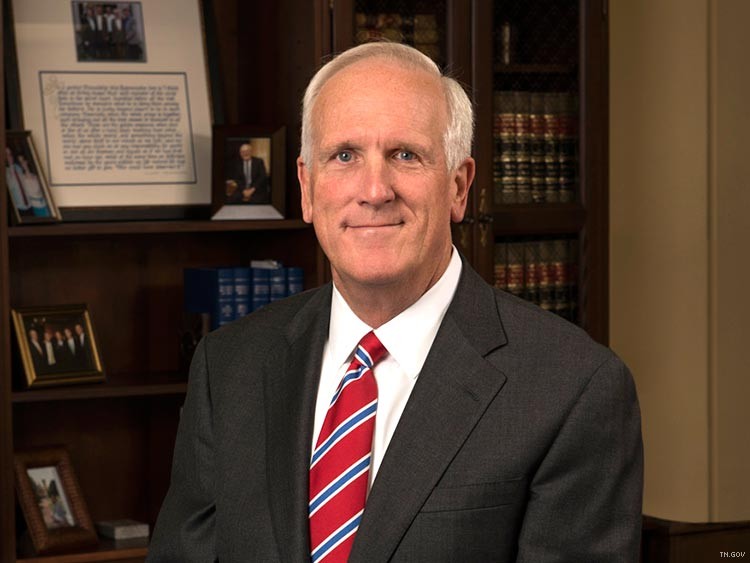A challenge of Tennessee’s law dealing with the use of public school restrooms and locker rooms by transgender students remains alive after a federal judge declined to dismiss all claims against the state education department and Williamson County Schools.
U.S. District Court Judge William Campbell denied the state’s request in to dismiss the child’s claim of a violation of rights under the Equal Protection Clause.
The judge, however, granted a request to dismiss the child’s claim that her Title IX rights were violated. The ruling notes that because the federal law allows schools to maintain separate restrooms for “the different sexes,” requiring the child to use the restroom based on her biological sex doesn’t violate Title IX.
The judge also dismissed the child’s request to correct all records to reflect her female gender.
Tennessee lawmakers have taken steps in recent years to prevent transgender athletes from playing sports based on their sexual identity. The Legislature enacted restrictions in 2023 on transgender medical treatment and this year adopted a bill preventing adults other than parents and guardians from taking children outside the state for transgender care.
Tennessee Lookout
The case against the Tennessee Department of Education and Williamson County Schools involves a 9-year-old transgender child who was male at birth but identifies as female, according to court filings. The child uses “she/her” pronouns and lives socially as a girl by wearing her hair long and dressing in a manner usually associated with girls.
The complaint was brought by a friend and the child’s parents when the child was 8, claiming the Williamson County elementary school she attends requires her to use a single-occupancy restroom, not the multi-use girls’ restroom.
The child claims the school’s “insistence” that she use a separate restroom “isolates her and distinguishes her from her classmates and exacerbates the stress and anxiety she experiences while trying to fit in and avoid being stigmatized on the basis of her sex and gender identity.” The child also claims the restroom designated for her has problems with distance from her class, safety and cleanliness.
The Tennessee Legislature passed the Tennessee Accommodations for All Children Act in May 2021, requiring public schools to provide a “reasonable accommodation” to students, teachers and employees who want “greater privacy when using a multi-occupancy restroom or changing facility designated for [their] sex and located within a public school building.”
“Reasonable accommodations” include single-occupancy restrooms or changing facilities or use of an employee restroom or changing facility.
The “reasonable accommodations” don’t include restrooms or changing areas designated for use by members of the opposite sex while the opposite sex is present or could be present. They also don’t require remodeling or structurally changing a school facility, or limiting access to a restroom or changing room designated for use by members of the opposite sex if that creates a violation or state or local building codes.
The new state law defines sex as “a person’s immutable biological sex as determined by anatomy and genetics existing at the time of birth.” It also provides students, parents, guardians, teachers and employees the right to sue public school systems for “psychological, emotional, and physical harm,” including monetary damages, legal fees and costs if they “encounter a member of the opposite sex in a multi-occupancy restroom or changing facility located in a public school building … [and] the public school intentionally allowed a member of the opposite sex [defined as sex at birth] to enter the multi-occupancy restroom or changing facility while other persons were present.”
Campbell denied the child’s request for an injunction against the school district to stop it from enforcing the state law.
Yet the judge opted not to dismiss the child’s claims under the Equal Protection Clause, which prohibits a state from “denying to any person within its jurisdiction the equal protection of the laws” and prevents government discrimination that “either burdens a fundamental right, targets a suspect class or intentionally treats one differently than others similarly situated without any rational basis for the difference.”
The judge’s ruling points out that classifications by the government based on sex are recognized as “a quasi-suspect classification subject to intermediate scrutiny.”
DH v. Williamson Board of Education
Tennessee Lookout is part of States Newsroom, a nonprofit news network supported by grants and a coalition of donors as a 501c(3) public charity. Tennessee Lookout maintains editorial independence. Contact Editor Holly McCall for questions: info@tennesseelookout.com. Follow Tennessee Lookout on Facebook and Twitter.



